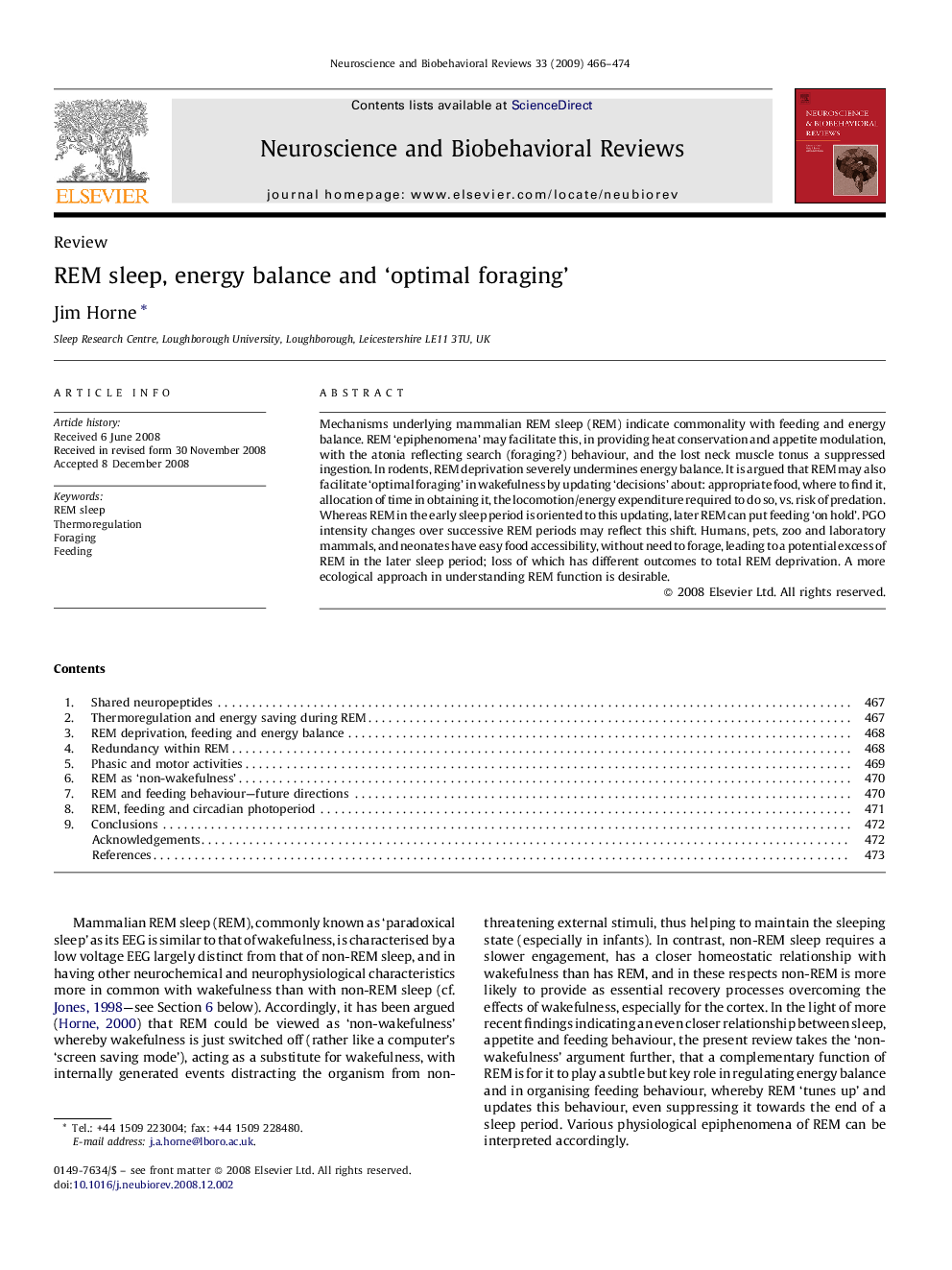| کد مقاله | کد نشریه | سال انتشار | مقاله انگلیسی | نسخه تمام متن |
|---|---|---|---|---|
| 938183 | 924591 | 2009 | 9 صفحه PDF | دانلود رایگان |

Mechanisms underlying mammalian REM sleep (REM) indicate commonality with feeding and energy balance. REM ‘epiphenomena’ may facilitate this, in providing heat conservation and appetite modulation, with the atonia reflecting search (foraging?) behaviour, and the lost neck muscle tonus a suppressed ingestion. In rodents, REM deprivation severely undermines energy balance. It is argued that REM may also facilitate ‘optimal foraging’ in wakefulness by updating ‘decisions’ about: appropriate food, where to find it, allocation of time in obtaining it, the locomotion/energy expenditure required to do so, vs. risk of predation. Whereas REM in the early sleep period is oriented to this updating, later REM can put feeding ‘on hold’. PGO intensity changes over successive REM periods may reflect this shift. Humans, pets, zoo and laboratory mammals, and neonates have easy food accessibility, without need to forage, leading to a potential excess of REM in the later sleep period; loss of which has different outcomes to total REM deprivation. A more ecological approach in understanding REM function is desirable.
Journal: Neuroscience & Biobehavioral Reviews - Volume 33, Issue 3, March 2009, Pages 466–474